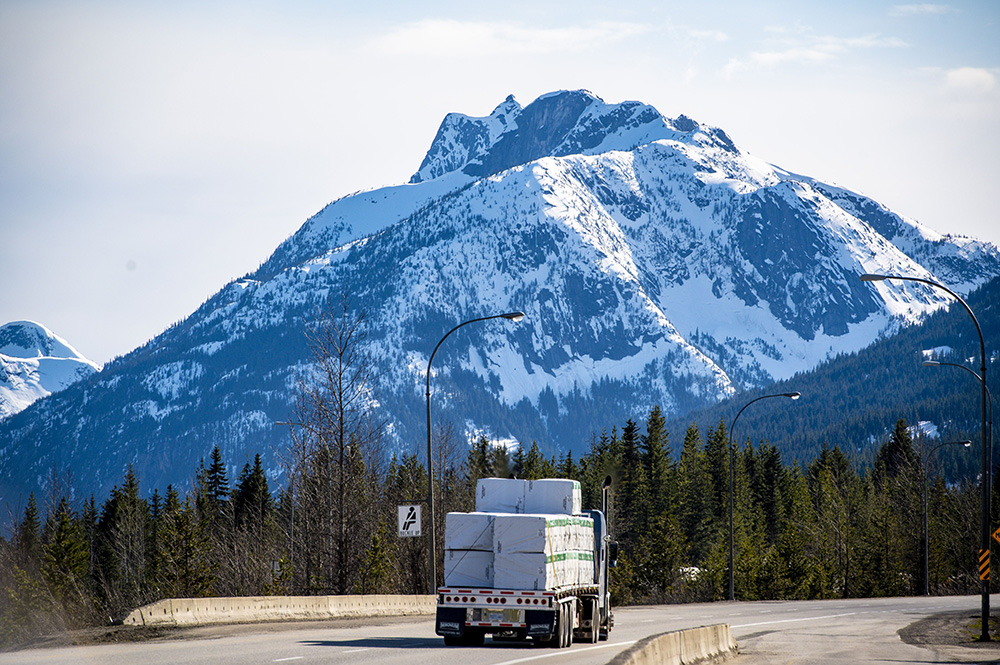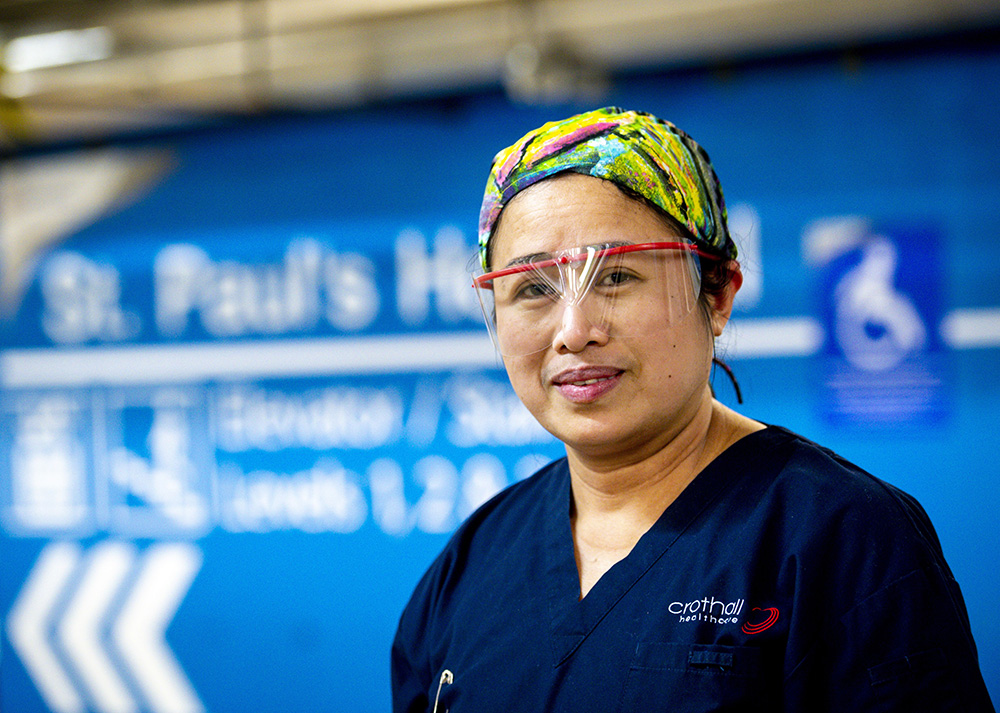Slowly and carefully, British Columbia is emerging from an unprecedented shutdown. And a big part of why we’ve weathered it as well as we have is the courage of working people, and the sacrifices they’ve made: treating the sick, providing vital public services and ensuring we can continue to have the necessities of life. COVID-19 has revealed how heavily we depend on frontline workers — while also shining a light on how many of them have been underpaid, undervalued and under-protected in the workplace.
This pandemic has also exposed deep gaps in our economy and society. Many British Columbians are realizing for the first time just how critical workplace safety and employment standards are, and just how much of our daily lives and our community’s well-being rely on robust public services and social supports. And as the message “We’re in this together” truly sinks in, so does our understanding of how marginalized the most vulnerable among us really are.
Which raises the question: As our economy emerges from the deep freeze, what do we want it to look like? Will we go back to the old normal, or will we lay the foundations for something much better?
The choices we make in the coming days and months are critical. We have an opportunity to create a new economy and build a province equipped to address climate change, while prospering along the way. One that continues along the path of reconciliation in partnerships with Indigenous peoples and communities. One that secures equity and shared prosperity in every community throughout this province.
There will be predictable calls to go the other way: a public sector in retreat from the economy and the community; fewer protections, poorer working conditions and lower wages for the working people who continue to be this province’s lifeline; vulnerable populations that remain in the margins; and years of progress toward reconciliation summarily abandoned. There are already voices arguing this will make business more competitive and generate jobs. We must not be fooled by this tired rhetoric.
History throughout countless recessions and downturns tells us that "austerity” only serves to freeze out working people and the most vulnerable. It enriches a handful of already-wealthy people while hollowing our communities and leaving most of us to fend for ourselves. Austerity, in fact, is why we have many of the gaps this pandemic has so glaringly exposed in the first place.
We must reject calls to cut and slash our way back to what we used to know as normal — now is the time to build a better, fairer, more sustainable and more prosperous future for everyone.
British Columbia’s post-pandemic recovery represents an unprecedented opportunity to make choices that reflect the fundamental values of our province. Here are eight principles that we believe must guide a truly successful recovery:
Economic recovery must centre on the success of working people.
Workers’ voices must be at the table: Recovery, as we’ve seen, can’t happen without them. A full economic recovery will require us to address low wages, strengthen health and safety protections, increase employment standards and empower workers’ rights across all sectors in B.C. Economic support programs must focus on job retention and preserving full-time, safe and stable employment. And in this first week of what’s been dubbed Phase Two, with this pandemic still very much a threat, let’s be clear about one thing in particular: As we reopen workplace by workplace, safety must be front and centre for all workers.
It’s time to recognize the true importance of long-undervalued work.
The pandemic has shown how essential workers are in sectors ranging from grocery store workers to health-care workers to frontline community and support workers — just to name a few. These workers, who are disproportionately women and people of colour, have been historically undervalued. They deserve wages and benefits that recognize their innate dignity and the importance of their work, and the ability to join together and bargain collectively to improve their working conditions.
We must embrace respect for the rights of Indigenous communities in every aspect of our province and economy, and continue implementing the UN Declaration on the Rights of Indigenous Peoples.
COVID-19 has highlighted the acute need to transform the colonial structures embedded in the public and private sectors in the province to come into line with the UN Declaration on the Rights of Indigenous Peoples, and the Truth and Reconciliation Commission’s 94 Calls to Action, in the spirit of the recently-passed BC Declaration on the Rights of Indigenous Peoples Act.
BC must invest in and expand public services and programs.
B.C.’s public services and programs fall short for many of the most vulnerable people in our province. To close those gaps, B.C. must dramatically increase its investment in public services and programs, whether related to income, housing, health care and childcare, access to nutritious food, education, or any other resources essential to meaningful security and well-being.

Workers need more security and robust standards across every employment sector.
The COVID-19 pandemic has exposed the depth of worker precarity and employers’ increasing reliance on contract and gig workers, as many workers cobble together multiple jobs at multiple worksites to make ends meet. Workers in this province deserve much more security and stability in their employment. Every worker in B.C. must be covered by robust employment standards and protected from the exploitation that all too often comes with misclassified contracting and gig work. And we must establish fair standards for working conditions in sectors that have been undervalued and underpaid for far too long.
We must make up for lost time in addressing the climate crisis, with an accelerated and inclusive path to a green economy.
One key lesson from this pandemic: Denial is a disastrous strategy for dealing with catastrophic threats — including the threat posed by human-driven climate change. Addressing that threat through a swift transition to cleaner, renewable sources of energy is a matter of both long-term survival and our economic well-being in the here and now. The restart of our economy is an unparalleled opening for an aggressive agenda to accelerate that move and the thousands of well-paying jobs it will entail. We must ensure all communities and workers benefit from the new opportunities offered by a modern, green economy, particularly those hardest hit by the decline of carbon-intensive industries.
Large-scale public investment, not short-sighted austerity, will restart the economy.
Public investment in services such as childcare, transit, public housing and public works projects produce multiplier effects that create employment and support workers across all sectors as they return to their jobs. It helps shore up the private sector’s vulnerability to economic shocks like pandemics and commodity price collapses. And used strategically, it encourages and structures private-sector investment to maximize benefits to our province and create secure, family-supporting jobs in regional economies throughout B.C.
We need to build long-term resilience in our communities.
As we rebuild, let’s consider not just economic indicators but human outcomes, especially our ability to ensure the basic needs of every British Columbian are met. This pandemic has not impacted people or communities equally, and our response must work to decrease these inequities, rather than exacerbate them. Our goals must entail nothing less than the end of poverty, homelessness and other inequities — and a society that can offer to everyone a meaningful connection to the communities where they live and work.
These principles underlie Rebuilding Our Economy For All, the BC Federation of Labour’s blueprint for restarting our economy, and reshaping it so it works for everyone, not just a few. We’re releasing it publicly today — in the early stages of B.C.’s economic reopening — to start a conversation our province needs to have now.
After an unprecedented economic shutdown, we now have an unprecedented restart — and a historic opportunity. It’s a once-in-a-lifetime chance to ask ourselves not just how and when, but what kind of economy we want to restart. ![]()
Read more: Local Economy, Rights + Justice, Coronavirus, Labour + Industry

















Tyee Commenting Guidelines
Comments that violate guidelines risk being deleted, and violations may result in a temporary or permanent user ban. Maintain the spirit of good conversation to stay in the discussion.
*Please note The Tyee is not a forum for spreading misinformation about COVID-19, denying its existence or minimizing its risk to public health.
Do:
Do not: